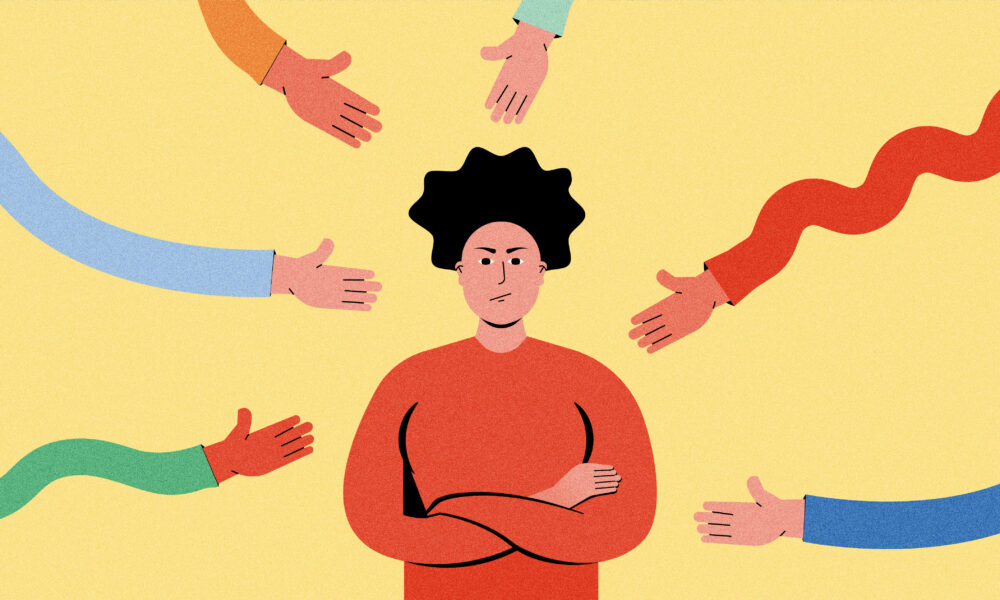In The Joys of Motherhood, Buchi Emechata narrates the story of how Nnu Ego survives motherhood in Lagos in the absence of her husband, Nnaife. In the early stage, one of the things that help Nnu Ego is the community of the Igbo people who come through for her when she needs help. When she losses her first child, she tries to commit suicide by jumping into the river but is rescued by an Igbo man who recognises her from their village. While trying to jump in the river, passers-by just pitifully stand and watch. Nnu Ego would have ended her life and that would have been the end of the story. But she survives in the arm of the community.
Buchi Emecheta’s The Joys of Motherhood, like many African books set in the early ’30s-60s tells of the strong sense of community Africans possessed. People extended help to strangers; they wouldn’t see you trying to harm yourself and simply watch. Children grew up with family and close friends. Community members knew one another, neighbours showed up for each other, family and friends rallied around those who needed help. There were community meetings, projects and festivals. People ate from the same plates and danced together. Villagers welcomed strangers with open arms and people were more homely. Sayings like it takes a village to raise a child, Motho ke motho ka batho (a person is a person because of other people) were indeed true
As the world progresses, our sense of community seems to be eroding and we’re embracing the culture of individualism more. People are moving from villages to cities in search of greener pastures. Those in the cities are scared of going to the villages or being a part of village groups.
A lot of young people barely grow up with their extended families; many don’t know their cousins. Friends are parting ways easily. There’s a japa wave that’s widening the gap between families and friends; people we know, grew up with, and ate from the same bowl are now scattered around the world. Parents can barely travel to do omugwo, nor do they have their grandkids running around their tables. Family meetings are now done on WhatsApp or Skype.
Are we truly losing our sense of community? One may argue that we are not. That the context of community has simply shifted from what we knew growing up to what it currently is. Growing up, there were no telephones, laptops or certain kinds of technology, so people were forced to seek each other or travel miles to be with family or friends. You were forced to talk to your neighbour or attend community gatherings. You wouldn’t want to miss certain festivals or shows because they were your major source of entertainment and networking.
We’re now more technology inclined. This means that it’s easier to turn to your phone than your surroundings. You don’t have to travel to talk to your loved ones or be physically present for certain occasions. There are online shows and many other forms of entertainment that do not require your physical presence. Technology has brought this community closer; it’s now at your fingertips.
Still, we may argue that technology hasn’t done a good job of replacing physical connections. Yes, we are meeting more people. No, we are not becoming more social. Christina Reeves writes: In most neighbourhoods and communities, we no longer see children playing, exploring, creating, and nurturing their curiosity. Instead, they are addicted to their electronics and as a result, have greatly diminished social skills. It is not only children who are affected. In many ways, the conversations around family and friendship have a way of influencing our relationships offline. With conversations about how our network is our net worth, how we owe no one anything, how we should cut off people who don’t match our energy, the fear of village people, and so on, people are now more wary of letting others into our lives offline or extending grace to others. Before, people used to look at their surroundings, turn to others for help and talk to their neighbours. Now, they live in isolation; their phones being their major companion.
One cannot help but wonder if we’d ever get it back: this sense of community. On social media, someone said our parents’ sense of community did not help this generation in any way. Many people watched their parents embrace and cater to their uncles and aunties tirelessly until resentment crept in. Many watched the communities their parents poured so much into turning their backs on them when they needed help. So many people have thus chosen to embrace individualism and put themselves first above others.
But there’s a loneliness epidemic. In 2021, a report showed that globally, two in five people (41%) became lonelier. In Nigeria, there’s a high chance that the friends you grew up with are now scattered around the world and you are forced to make new friends.
More than ever, we need to bring back our sense of community. Reach out to your neighbour and say hi to them. Call your friends today and plan a meetup. Visit your cousins and extended family members. Volunteer for community projects. Join a local church and be active. Above all, extend grace and love to people.
Share your story or advertise with us: Whatsapp: +2347068606071 Email: info@newspotng.com









![2027: Scores of PDP members defect to APC in Oyo [PHOTOS]](https://newspotng.com/wp-content/uploads/2025/05/2027-Scores-of-PDP-members-defect-to-APC-in-Oyo-324x235.jpg)

 NEWSPOT NIGERIA DAILY PULSE
NEWSPOT NIGERIA DAILY PULSE  May 03, 2025
May 03, 2025


![2027: Scores of PDP members defect to APC in Oyo [PHOTOS]](https://newspotng.com/wp-content/uploads/2025/05/2027-Scores-of-PDP-members-defect-to-APC-in-Oyo-324x160.jpg)


